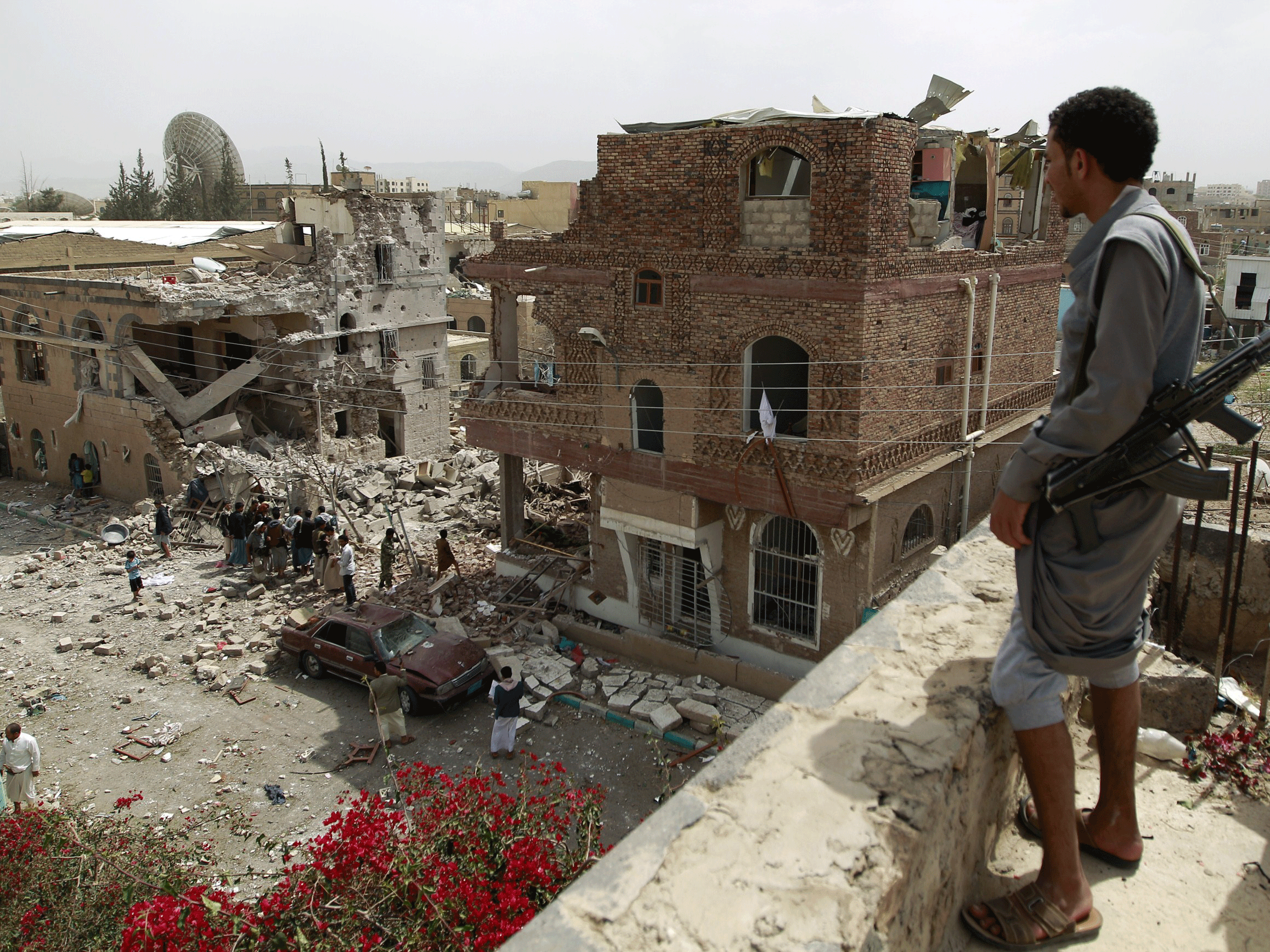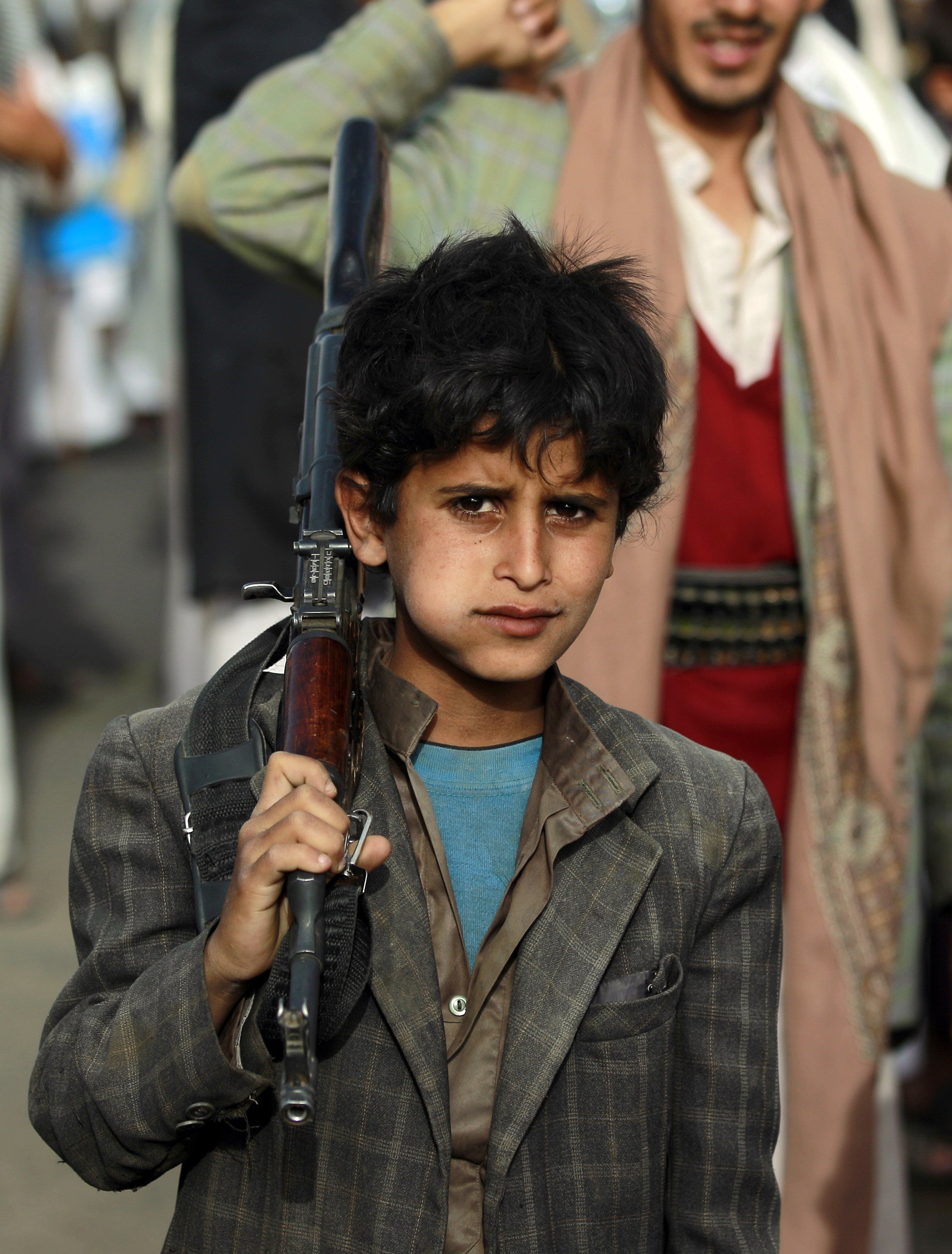Yemen ceasefire called by Saudi coalition just days after an airstrike killed 120 in Mokha
Saudi forces the ceasefire would stop if rebels launched an attack or moved their military forces

The Saudi-led coalition fighting against Houthi rebels in Yemen has announced a five-day humanitarian ceasefire, days after an airstrike killed at least 120 in the town of Mokha.
In a statement released by Saudi state media, the ceasefire begins at one minute before midnight on Sunday, and reportedly follows a request from Yemeni President Abed Rabbuh Mansur Hadi to Saudi Arabia's King Salman.
The statement said that the military would follow the ceasefire, but would have to respond if any Houthi Rebels used the pause in fighting to move their military or launch any attacks.
The announcement came shortly after the attack on Mokha, a town on the Red Sea Coast. Many civilians were killed, even though officially, the coalition says it only attacks military targets.
The airstrike hit workers' housing in a residential area of the town. Many of them had relatives there, who were visiting for the Eid-al-Fitr holiday, which took place on 18 July and celebrated the end of Ramadan.
The strike further raised concerns that Saudi military attacks are moving away from solely focusing on military targets and now including civilians. Yemeni officials said the nearest Houthi outpost to the block that was hit is around three miles away.
Hassan Boudcenine of Doctors without Borders said: "It just shows what is the trend now of the air strikes from the coalition. Now, it's a house, it's a market, it's anything."

Since March 26, at least 1,693 civilians have been killed in the Yemen fighting, with 3,829 wounded, the UN said this week. It says civilians have been killed by mortar fire and ground fighting though "the majority of the casualties are reported to have been caused by air strikes".
The fighting in Yemen has taken place since March, when President Hadi, who faces challenges to his leadership within the country, asked for help as Shia Houthi forces began attacking the capital.
The Houthis are a rebel group from Yemen, in conflict with the government of the country since the start of an insurgency in 2004.
The Houthis come from the Zaydi religious group, an offshoot of more mainstream Shia Islam. They were based mostly in the north of Yemen, and following the installation of President Hadi after dictator Ali Abdullah Saleh was deposed during the Arab Spring in 2011, the Houthis grew angry that they had no representation in this transitional government.
The group mobilised militarily, and over the last few years, the anti-American and anti-Jewish group has taken control of large parts of the country - and are currently embroiled in a regional conflict, fighting against a coalition led by Saudi Arabia, and participated in by Bahrain, Kuwait, Qatar, the United Arab Emirates, and many other Middle Eastern and African nations.
Join our commenting forum
Join thought-provoking conversations, follow other Independent readers and see their replies
Comments
Bookmark popover
Removed from bookmarks